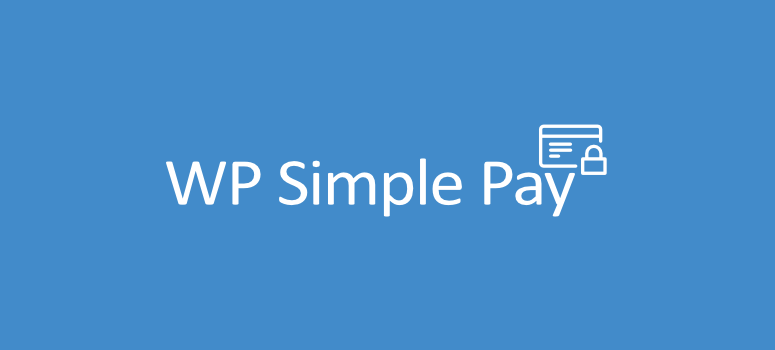Top 4 WordPress eCommerce Plugins for 2024
Thinking about launching an online store with WordPress? You’ve picked the right platform — now you need the right WordPress eCommerce plugin.
Whether you want to sell physical products, digital goods, or services, WordPress provides a solid foundation on which you can build a thriving store. Since WordPress doesn’t come with built-in eCommerce functionality, you’ll need to add an eCommerce plugin. Fortunately, there are several excellent options available that can add everything you need to sell online, from product pages and shopping carts to checkouts and payment processing.
In this post, we’ll cover the best WordPress eCommerce plugins available in 2024 to help you decide which option best suits your online business.
What to Look for in a WordPress eCommerce Plugin
When choosing a WordPress eCommerce plugin, consider the following:
- What are you selling? Your product type will influence your choice of plugin. Some plugins are ideal for selling physical products requiring inventory and shipping management, while others are better suited for digital products like software, music, and ebooks. If you’re selling services, look for a plugin that supports bookings.
- How do you want customers to pay? Consider the payment methods you want to offer. Ensure the plugin supports your preferred payment methods either by default or through third-party plugins.
- How do you want your store to look? Your store should reflect your brand, so make sure the plugin works well with your theme or any themes you plan to use.
- Do you need extra functionality? Some plugins require extensions for additional features. Make a list of necessary functionalities and check if the plugin or its extensions offer them.
- What is your budget? Depending on the plugin, you may need to pay a subscription fee or for additional extensions. Research costs to avoid unexpected expenses.
The 4 Top WordPress eCommerce Plugins
1. WooCommerce
With over 5 million active installs, WooCommerce is the most popular, flexible, and customizable WordPress eCommerce plugin.
Pros:
- Easy to extend with hundreds of extensions for various functionalities.
- Hundreds of WooCommerce-compatible themes.
- Supports physical and digital products.
- Built-in payment and shipping options.
- Inventory management.
- Extensive support and documentation.
Cons:
- Can be overwhelming for beginners.
- Theme customization can be tricky without a WooCommerce-compatible theme.
- May require custom development for specific functionalities.
Pricing: WooCommerce is free, but premium extensions can cost up to $299 a year.
Best suited to: Selling a wide range of products with maximum control and flexibility.

2. Easy Digital Downloads (EDD)
EDD is tailored for selling digital products and is user-friendly for beginners.
Pros:
- Specifically supports digital products.
- Intuitive and easy to use.
- Hundreds of free and premium extensions.
- Compatible with any theme.
- Developer-friendly with a complete RESTful API.
- Comprehensive support and documentation.
Cons:
- Not focused on selling physical goods.
Pricing: EDD is free, with a Personal Pass starting at $99.50 a year and an All Access pass at $499.50 a year.
Best suited to: Selling digital goods like music, videos, ebooks, and software.
3. Ecwid
Ecwid is an eCommerce solution for small businesses wanting to add store functionality to an existing WordPress site.
Pros:
- Easy integration with WordPress using shortcodes.
- Free plan for up to 5 products.
- Automatic updates.
- Sell on multiple platforms, including social media.
- Well-supported with documentation and priority support for paid users.
Cons:
- Limited control over SEO.
Pricing: Free for 5 products, with plans starting at $19 per month.
Best suited to: Small business owners looking to quickly and easily add a store to their WordPress site and sell on social media platforms.
4. Shopify
Shopify can integrate with WordPress via Shopify Buy buttons, combining the flexibility of WordPress with Shopify’s eCommerce features.
Pros:
- Combines WordPress flexibility with Shopify’s ease of use.
- Managed security, payments, and inventory.
- Straightforward setup.
- Extensive support available.
Cons:
- Monthly cost starts at $39, with additional transaction fees.
- Limited WordPress plugin capabilities.
- Separate management for the WordPress site and Shopify store.
Pricing: From $39 a month, with the ShopWP plugin starting at $199 a year.
Best suited to: Those who already have a Shopify site and want to sell products on their WordPress site.
5. WP Simple Pay
WP Simple Pay is ideal for taking payments on your WordPress site without a full online store setup.
Pros:
- Quick setup in minutes.
- Drag-and-drop form builder for custom payment forms.
- Secure Stripe payment processing.
- Supports recurring payments and buy-now-pay-later options.
Cons:
- Not a full eCommerce solution.
Pricing: Starts at $49.50 a year for one site.
Best suited to: Freelancers, service providers, and donation websites taking one-off and recurring payments.

🤔 Choosing the Right WordPress eCommerce Plugin for You
- WooCommerce: Best for full control, flexibility, features, and scalability.
- Easy Digital Downloads: Ideal for selling digital goods.
- Ecwid: Great for small businesses adding store functionality to an existing WordPress site.
- Shopify: Suitable for those with a Shopify store wanting to integrate with WordPress.
- WP Simple Pay: Perfect for taking payments on your WordPress site without a full store setup.
Read More 10 Best WordPress Themes for Elementor






